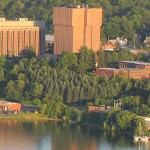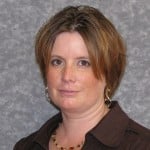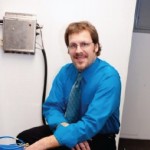 The ME-EM Graduate Seminar speaker on Thursday, January 29 at 4:00 in 103 EERC will be Jeremy Worm, Research Engineer from Mechanical Engineering – Engineering Mechanics, MTU. The title of his presentation will be ‘Hands-On Education with the Michigan Tech Mobile Lab’.
The ME-EM Graduate Seminar speaker on Thursday, January 29 at 4:00 in 103 EERC will be Jeremy Worm, Research Engineer from Mechanical Engineering – Engineering Mechanics, MTU. The title of his presentation will be ‘Hands-On Education with the Michigan Tech Mobile Lab’.
The Michigan Tech Mobile Lab is a one-of-a-kind educational facility. The lab is used for providing hands-on discovery based educational experiences. As such, the lab is used for teaching hands-on college cours-es, professional short courses, and STEM outreach. With light and heavy duty ground vehicles, powertrain test cells, a chassis dynamometer, benchtop activities, and advanced instrumentation systems, the lab can be used for a wide range of engineering subjects. This seminar will provide an overview of the lab, its ca-pabilities, and will look at the specifics of one of the hands-on experiments students conduct in the lab.
Jeremy Worm, is a Research Engineer and Instructor in the Department of Me-chanical Engineering – Engineering Mechanics at Michigan Tech, where he re-ceived his BS and MS degrees. Prior to joining the Michigan Tech Staff, Jeremy was a Senior Engineer at GM Powertrain. At GM Jeremy focused on combus-tion analysis, development of variable valve timing systems and operational strategies, and was the Lead Development Engineer for a new engine in a hybrid vehicle. At Michigan Tech, Jeremy remains active in the field of powertrain re-search, has developed and teaches several courses in the area of powertrain re-search and hybrid vehicles, and directs the Michigan Tech Mobile Lab. Jeremy is a licensed Professional Engineer, has authored or co-authored 25 publications, has 2 patents, has received a best paper award, and has been inducted into the Michigan Tech Academy of Teaching Excellence.
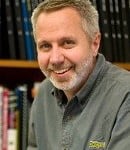 by Mike Meyer, director, William G. Jackson CTL
by Mike Meyer, director, William G. Jackson CTL
The Dean’s Teaching Showcase nominee for this week comes from the College of Engineering. Dean Wayne Pennington has chosen to recognize Gordon Parker, the John and Cathi Drake Professor in the Mechanical Engineering-Engineering Mechanics Department. Both Pennington and MEEM chair Bill Predebon praised Parker as “a great success story of the flipped classroom approach.” Gordon has effectively implemented the flipped classroom model in both a senior level and graduate level controls course, and now has more than 30 video clips that are being used world-wide.
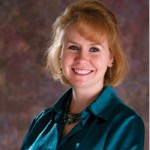 The ME-EM Graduate Seminar speaker on Thursday, January 22 at 4:00 in 103 EERC will be Nancy Barr, M.S. from Mechanical Engineering – Engineering Mechanics, MTU.
The ME-EM Graduate Seminar speaker on Thursday, January 22 at 4:00 in 103 EERC will be Nancy Barr, M.S. from Mechanical Engineering – Engineering Mechanics, MTU.
Strong Communication Skills are Critical for Success
Regardless of professional title, strong communication skills are critical for success. A key component of graduate education is the development of a professional identi-ty through a variety of communication opportunities, from research project presenta-tions in courses to conference papers and presentations. Those students in the pro-ject, thesis, or PhD track will have to prepare a lengthy written paper documenting their research and orally defend their work to an audience. This seminar will provide information to help students understand the importance of three factors – under-standing their audience, developing time management skills, and organizing their thoughts – in their ultimate success as engineers and researchers.
Nancy Barr is the Senior Design and Technical Communications Advisor for the Mechanical Engineering-Engineering Mechanics Department at Michigan Technological University. She teaches technical communica-tion at the undergraduate and graduate level and assists faculty in creating assignments that encourage communication and critical thinking skill de-velopment in disciplinary courses. She earned a master of science in rhetoric and technical communication from MTU and is now working to-wards a PhD in rhetoric, theory, and culture at MTU. Her research fo-cuses on graduate teaching assistant training and the use of portfolios to assess curriculum changes.
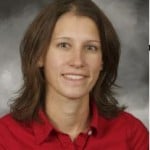 The ME-EM Graduate Seminar speaker on Thursday, January 15 at 4:00 in 103 EERC will be Dr. Jaclyn Johnson from Michigan Technological University: Mechanical Engineering – Engineering Mechanics.
The ME-EM Graduate Seminar speaker on Thursday, January 15 at 4:00 in 103 EERC will be Dr. Jaclyn Johnson from Michigan Technological University: Mechanical Engineering – Engineering Mechanics.
The title of her presentation will be ‘Vaporizing Diesel Spray Characteristics Studied in an Optically Accessible Constant Volume Combustion Vessel’.
Diesel combustion and emissions formation is largely spray and mixing controlled and hence understanding spray parameters, specifically vaporization, is key to determine the impact of fuel injector operation and nozzle design on combustion and emissions. One methodology to experimentally characterize and quantify parameters is using optical and laser based diagnostics with an optically accessible constant volume combustion vessel (CV). Using this CV, researchers have the ability to characterize sprays and combustion under a range of ambient conditions (pressure and temperature) and composition, to visualize the influence of ambient, or injection parameters, on spray development and combustion. The details and application of this combustion vessel will be discussed. Focus of the discussion will be on vaporizing diesel spray characterization of the spray liquid length. In experimental testing, it has been observed that there are noticeable fluctuations in liquid phase penetration once the steady state liquid length has been estab-lished, on the order of 10% of the mean liquid length, along with plume to plume liquid length variations. This presentation will explore and identify the key mechanisms for liquid length fluctuations and plume to plume variations in spray penetration. Based on the experimental, 1 D liquid length model, and CFD anal-ysis it is concluded that a key mechanism for liquid length fluctuations in a transient diesel spray is due to spray induced turbulent eddies near the edge of spray plume.
Jaclyn Johnson is a lecturer in the ME-EM department at Michigan Tech, since 2014. She holds a B.A. in Physics from Illinois Wesley-an University and a M.S. and Ph.D in Mechanical Engineering from Michigan Tech University. After graduating from MTU in 2011, she spent the next three years conducting research as a Research Engineer in the ME-EM department at Michigan Tech on diesel spray combustion characterization using optical diagnostics with an optically accessible constant volume combustion vessel. Dr. Johnson has re-search interests in diesel spray and combustion, spark ignition characterization, and thermophysical property modeling. Her specialties include optical and laser based diagnostics, image processing methodologies, and diesel spray characterization and analysis.
Assistant Professor Ossama Abdelkhalik (MEEM), Associate Professor Nilufer Onder (CS) and Hui Meen Nyew who graduated with a CS PhD in summer 2014 published a paper titled, “Structured-Chromosome Evolutionary Algorithms for Variable-Size Autonomous Interplanetary Trajectory Planning Optimization,” in the AIAA Journal of Aerospace Information Systems (pre-print doi: http://arc.aiaa.org/doi/abs/10.2514/1.I010272). The paper describes a new technique to represent and search for optimal solutions that are organized in sections.
Dr. James De Clerck who has been selected as a 2014 SAE Outstanding Faculty Advisors Program for Student Branch and Collegiate Design Series Team Advisors. In the announcement they said “This award recognizes your dedication and contributions to SAE and your Collegiate Chapter. Jim is the faculty advisor for the SAE FormulaCar Enterprise Team.
Gregory Odegard (MEEM/MuSTI) has received $10,000 from the University of Illinois at Urbana-Champaign for a three-year project titled “Center for Novel High Voltage/Temperature Materials and Structures.”
Tolou Shokuhfar (MEEM/MuSTI) has received $32,121 from the University of Illinois–Chicago for the research and development project “In Situ Liquid Microscopy of Fiber-Fluid Interactions.”
The DELSYS website, which features news about wearable senses for movement sciences, reported on Assistant Professor Mo Rastgaar’s (MEEM) work on a powered ankle-foot prosthesis that simulates natural foot and ankle movement for amputees. See the website.
PhD student Mehdi Mortazavi (ME) published an article, “Two-phase flow pressure drop in flow channels of proton exchange membrane fuel cells: review of experimental approaches,” in Renewable & Sustainable Energy Reviews.
Professor Gregory Odegard (MEEM/MuSTI) has received $40,000 from the Colorado Seminary (owns and operates the University of Denver) for a one-year research project titled “Center for Novel High Voltage/Temperature Materials and Structures.”
Microgrid Knowledge, a website about electrical microgrids, published an article about Assistant Professor Nina Mahmoudian’s (MEEM) development of robots that can set up microgrids to restore power in areas hit by natural or man-made disasters.
Assistant Professor Ossama Abdelkhalik (MEEM) has received $50,000 from Sandia National Laboratories for a research and development project, “Advanced Control of Wave Energy Converters.”
Technology Century, an online and print publication of the Engineering Society of Detroit, featured editor Matt Roush’s interviews with faculty and graduate students from the College of Engineering at Michigan Tech, the first stop on his annual Tech Tour of university campuses in Michigan.
GCN, a website that provides tech news to public-sector IT managers, ran an article about Assistant Professor Nina Mahmoudian’s (MEEM) work to develop teams of robots that can be sent unattended into damaged facilities to detect the power requirements and either reconnect or deliver power from batteries carried on the robots.
L. Brad King (MEEM) has received $456,539 from the Air Force Office of Scientific Research for a research and development project titled “Characterization Test-bed for Nanostructured Propellants.”
William Endres (MEEM) has received $47,041 for the first year of a potential five-year project totaling $246,451 from the Air Force Research Lab. His research and development project is titled “Fuze Testing Capability Development.”
Tolou Shokuhfar (ME-EM/MuSTI) received $29,600 from the Pacific Northwest National Laboratory for a research and development project titled “In Situ Liquid Microscopy of Biological Materials.”
Science360 News, a science news site published by the National Science Foundation, featured in its Oct. 7 issue the research of Reza Shahbazian-Yassar, Richard and Elizabeth Henes Associate Professor in Nanotechnology (MEEM). Shahbazian-Yassar is studying ways to exploit the defects in new materials to make improved batteries.
The Graduate School is pleased to announce that the following Mechanical Engineering-Engineering Mechanics students have earned the Doctoral Finishing Fellowship: Ryan Lemmens, PhD candidate, Seyedmehdi Morazavi Zanjani, PhD candidate, Ranjeeth Naik, PhD candidate, Ehsan Taheri, PhD candidate, Anqi Zhang, PhD candidate. More information
Several examples of the diverse research at Mechanical Engineering-Engineering Mechanics department were shown at the R.L. Smith Building on Tuesday, Sept. 30. MEEM faculty and graduate students presented posters describing on-going and future research activities.
L. Brad King (MEEM) has received $383,315 of $745,578 from the US Department of Defense, Air Force Office of Scientific Research for the first year of a two-year research and development project, “Electrospray from Magneto-Electrostatic Instabilities.”
Nina Mahmoudian, Michelle Miller and Mohammad Rastgaar (MEEM) have received $118,454 from the National Science Foundation for the first year of a three-year research project titled “NRI: Co-Robots to Engage Next Generation of Students in STEM Learning.”
Reza Shahbazian-Yassar (MEEM) has received $209,436 from the National Science Foundation for the first year of a potential three-year project titled “Fundamental Understanding on the Role of Structural Defects on Lithiation of Nanoscale Transition Metal Oxides.”
Ossama Abdelkhalik (MEEM) has received $212,864 from the National Science Foundation for a three-year research and development project titled “CPS: Breakthrough: Toward Revolutionary Algorithms for Cyber-Physical Systems Architecture Optimization.”
Michigan Tech graduate students at Tech’s Advanced Power Systems Research Center were featured on PowerNation: Engine Power, a cable TV program aired on CBS Sports Network and Spike TV. See the video clip.
PI Reza Shahbazian Yassar (ME-EM) and Co-PIs Yoke Kin Yap (Physics), Stephen Hackney (MSE), Tolou Shokuhfar (ME-EM), and Claudio Mazzoleni (Physics) was awarded $1,200,000 from the National Science Foundation for “MRI: Acquisition of a High-Resolution Transmission Electron Microscope for In-Situ Microscopy Research and Education.”
The Michigan Tech Space Trajectory Optimization Team was ranked 20 in the 7th Global Trajectory Optimization Competition. This Competition is an event that takes place every one-two years over roughly one month during which the best aerospace engineers and mathematicians worldwide challenge themselves to solve a “nearly-impossible” problem of interplanetary trajectory design.
PI Nina Mahmoudian (MEEM) was awarded $24,000 from the National Institute for Occupational Safety and Health-Office of Mine Safety and Health for her project “Analysis of Mobile Haulage Equipment Operating Dynamics.”
PI Mahdi Shahbakhti (MEEM) was awarded $169,986 from the National Science Foundation for his project “GOALI: Collaborative Research: Easily Verifiable Controller Design.”
An article on how the Michigan Tech Mobile Lab is using cutting edge engineering tools in hands-on professional development education is featured on Wineman Technologies Website. See Inertia and Dynacar Deliver Hands-on Learning in Michigan Tech’s Mobile Lab for the full story.
R&D Magazine has named the automotive phased array radar research of Nikola Subotic, co-director of the Michigan Tech Research Institute, and his research colleagues as a recipient of a 2014 R&D 100 Award. The award recognizes the 100 most significant high-tech products developed in the past year. “On behalf of the R&D staff, I would like to commend the project team on the design, development, testing and production of this remarkable product,” said Lindsay Hock, managing editor of R&D Magazine and R&D Daily. The technology is a new type of collision avoidance radar for cars that achieves high performance at a significantly reduced cost by breaking the problem into two pieces: beam steering and beam refinement. Beam steering enables the radar to look in the general direction of a collision threat, using a simple look-up table. Beam refinement, which is computationally expensive, adaptively focuses the beam on the threat. Subotic explains that current systems try to do both jobs at once as a refinement operation. “By breaking the job into two parts, we have made both the processing and radar quite simple; even the refinement stage, since it has to refine only a little as opposed to having to search the entire space,” he says.
An article on Nina Mahmoudian’s (MEEM) research on autonomous underwater vehicles, “Michigan Tech’s ROUGHIE Gliders Will Follow Their Own Path,” has been published in Environmental Monitor. To read more visit, online.
PI Reza Shahbazian Yassar (MEEM) was awarded $18,042 from UChicago Argonne, LLC for his project “New Sulfur-Carbon Cathode Material with Improved Electrochemical Performance.”
PI Amitabh Narain (MEEM) was awarded $299,781 from the National Science Foundation for his project “Fundamental Investigations for Very High Heat-Flux Innovative Operations of Milli-Meter Scale Flow Boilers.”
A Seminar was held in June titled: Combined Heat and Power At Michigan State University Using Torrefied Biomass to Reduce Fossil Fuels and Green House Gas Emissions; Speaker: Nate Verhanovitz, Performance Engineer, Power and Water Infrastructure Planning and Facilities, Michigan State University. To find out more see seminar story. Michigan Tech will be a supplier to MSU and the T.B. Simon power plant of torrefied biomass pellets produced at the pilot plant of Michigan Tech’s APS Labs. The pellets will be used in the next phase of biocoal test burns at the T.B. Simon power plant. MTU involvement includes: Dr. Ezra Bar Ziv (professor, ME‐EM), Jordan Klinger (PhD candidate, ME‐EM), John Diebel (assistant director, Technical Commercialization).
PI Scott Miers (MEEM) was awarded $130,167 from Minnesota Corn Growers Association for “Enhancement of Corn-based Fuel for Recreational Engines and Vehicles.”
Michigan Tech Research Excellence Fund Awards Announced:
The Vice President for Research Office is pleased to announce the 2015 REF awards and would like to thank the volunteer review committees, as well as the deans and department chairs, for their time spent on this important internal research award process.
Infrastructure Enhancement Grants: Craig Friedrich, MuSTI/MEEM
Research Seed Grants: Mahdi Shahbakhti, MEEM; Tolou Shokuhfar, MEEM
Two ME-EM students are among the three Michigan Tech recipients of a prestigious National Science Foundation’s Graduate Research Fellowship Program (GRFP) for 2014. Congratulations to David Deisenroth (MSME) advised by Dr. Jeff Allen and Gregory Hardy (BSME) on these awards. These are extremely competitive awards and continue to show the excellence of our students at all academic levels.
Mo Rastgaar (MEEM), has been awarded $497,393 over five years for “CAREER: Steerable Powered Ankle-foot Prostheses for Increased Mobility in Amputees” from the NSF.
Gregory Odegard (MEEM) has received $59,999 for a potential five-year project “I/UCRC: Novel High Voltage/Temperature Materials and Structures,” from the National Science Foundation.
Assistant Professor Tolou Shokuhfar’s (MEEM) research described in the story “It’s the Water: Graphene Balloon Yields Unprecedented Images of Hydrated Protein Molecules,” has appeared in Science Daily, Phys.org, Graphene Times and ScienceNewsline.
Research completed by graduate student Brennan Tymrak (ME), alumna Megan Kreiger (MSE) and Joshua Pearce (MSE/ECE) was highlighted in the EE Times article “Measuring Open Source Hardware 3D-Printed Material Strength.”
Research completed by graduate student Brennan Tymrak (ME), alumna Megan Kreiger (MSE) and Pearce (MSE/ECE) was highlighted by 3D Printing Industry in “Michigan Tech Study Suggests Some RepRap 3D Prints Are As Strong as Commercial 3D Printers.”
Nancy Barr (MEEM), technical communications and senior design administrative associate, is featured in the article “Getting it Write,” which was published in the March edition of PE Engineer. The article focuses on her program that teaches teaching assistants how to edit students’ lab reports.
Jay Meldrum has been elected to the Board of Directors of SAE International.
Formerly the Society of Automotive Engineers, SAE International is a global association of more than 138,000 engineers and related technical experts in the automotive, aerospace and commercial-vehicle industries. Meldrum is executive director of the Keweenaw Research Center (KRC) and the Advanced Technology Development Complex (ATDC). He came to the University in 1997 and directs the 30-plus engineering professionals at KRC, which contracts with the US Army to study large-vehicle mobility technologies. He directs Michigan Tech Enterprise SmartZone activities at the ATDC and advises companies looking to commercialize technologies developed at Michigan Tech. He also manages alternative energy research projects at KRC. More
Research Engineer Jeremy Worm (MEEM) was quoted in an article in Design News on the risks and complexities of electronic throttle control in automobiles, and the progression to self driving vehicles” The full article can be found at Design News.
Nina Mahmoudian (MEEM/GLRC) has been awarded a $70,000 research grant from the Office of Naval Research for “Low-Cost Underwater Glider Fleet for Littoral Marine Research.”
Mehran Bidarvatan, PhD student (MEEM), has published “Cycle-to-cycle Modeling and Sliding Mode Control of Blended Fuel HCCI Engine” online in the Journal of Control Engineering Practice. http://www.sciencedirect.com/science/article/pii/S0967066113002128 .
Jeffrey Allen and Chang Kyoung Choi (MEEM) have received $125,000 for the first year of a two-year research project, “A New Experiment for Determining Evaporation and Condensation Coefficients of Cryogenic Propellants and Development of an Efficient Computational Model of Cryogenic Film Stability in Microgravity,” from the National Aeronautics and Space Administration. The project will total $500,000.
Research by Assistant Professor Mo Rastgaar and graduate student Evandro Ficanha (MEEM) is featured on the website of the American Society of Mechanical Engineers. See “Computer-Controlled Prosthetic Closely Matches Action of Human Legs.”
The Mumbai Mirror and Science World Report both published news stories about Assistant Professor Mo Rastgaar’s (ME-EM) work with the Mayo Clinic to develop a prosthetic foot that moves like a real human foot. See The Mumbai Mirror and Science World Report for the full story.
Assistant Professor Mo Rastgaar’s work designing and building a microprocessor-controlled artificial leg has been widely publicized, with more articles like the above appearing in IEEE Spectrum,, Medical Design Online, Gizmag,CNN, UPI Science News and many more outlets. He was also interviewed for Clear Channel One’s radio program Conversations in Health Care.
The Michigan Tech Mobile Lab recently attended the Graphical System Design Conference in Chicago. Mobile Lab Director Jeremy Worm gave an invited talk on the importance of hands-on professional development. Mobile Lab Operations Manager Chris Davis, with graduate students Luke Johnston and Henry Schmidt, delivered a hands-on seminar on CAN Communications.
Research Universities Partner to Increase the Diversity in Future Faculty Craig Friedrich (MEEM), Shekhar Joshi (Bio Sci) and Chris Wojick (CEE) are co-principal investigators on the project.
The Great Lakes Echo published an article about population trends in the UP, with a photo of Michigan Tech, suggesting that the University and the small tech companies it has spun off may be one of the reasons for current population growth in the area. See the article
Michigan Tech’s new autonomous underwater vehicle, Iver 3, was featured on the Autonomous Undersea Vehicle Applications Center website.
Research by Assistant Professor Tolou Shokuhfar (MEEM) on the use of nanotubes to improve dental implants has been distributed by a number of outlets. The Dentist News Network has prepared a news video on her work. The story also appears in DrBicuspid.com, Science Daily, MedGadget.com and other media.
Postdoctoral Associate Jaclyn Johnson (APSRC/MEEM) recently received the 2013 SAE Excellence in Oral Presentation award for “Investigation of Key Mechanism for Liquid Length Fluctuations in Transient Vaporizing Diesel Sprays Using Experimental Results and CFD Modeling,” which she presented at the SAE World Congress in April 2013.
Laboratory Equipment, a daily news web site for laboratory professionals, reported on assistant professor Tolou Shokuhfar’s (MEEM) research into using nanotubes to improve dental implants. Link
Brad King, the Ron and Elaine Starr Professor of Mechanical Engineering-Engineering Mechanics, is featured in a story in The Economist. “Satellite Propulsion: It’s Not Rocket Science” describes his work developing a new type of satellite engine and focuses on its serendipitous aspects. The engine’s main ingredient was borrowed from Australian scientists seeking a treatment for liver cancer.
Seoung-Young Lee and Jaclyn Johnson (MEEM) have received a $237,431 grant from the National Science Foundation for “NSF/DOE Partnership on Advanced Combustion Engines: Ignition and Combustion Characteristics of Transportation Fuels under Lean-Burn Conditions for Advanced Engine Concepts,” a three-year project which will total $650,000.
PI Wayne Weaver (ECE) and Co-PI Gordon Parker (MEEM) have been awarded a $250,000 one-year research contract for “Modeling and Control Technologies for Near-Term and Long-Term Networked Microgrids” from Argonne National Laboratory.
Jeremy Worm (MEEM) has been awarded $19,099 from the US Department of Defense, Army, TARDEC, for “High Impact STEM Outreach Utilizing the Michigan Tech Mobile Laboratory at the 2013 Heroes Alliance Parental Boot Camp.”
PI Lyon B. King and Co-PI Kurt Terhune (MEEM/ISP) have been awarded a $68,000 grant/student fellowship from the National Aeronautics and Space Administration for “In-situ Visualization of the Local Electric Field around an Ionic Liquid Taylor Cone Using Electron Holography.”
Wayne Weaver (ECE), Gordon Parker (MEEM), Laura Brown (CS) and Steve Goldsmith (MEEM) have received $275,003 from the US Department of Defense, Army Research Laboratory for the first year of a potential four-year, $1,799,999 research project “Distributed Agent-Based Management of Agile Microgrids.”
William Endres and Robert De Jonge (MEEM) have received the first increment of $24,000 for a one-year research project “Fluidics, Power, and Logic Circuitry Design/Integration into Handheld Sensor Platform” which will total to $24,991 from Battelle Memorial Institute.
Gordon Parker (MEEM), Steven Goldsmith (MEEM) and Wayne Weaver (ECE) have received $100,000 from Sandia National Laboratories for a three and a half month long research project, “Agent Based Control with Application of Microgrids with High Penetration Renewables.”
Ezra Bar Ziv (PI, ME‐EM), “Feasibility of a Novel Concept to Produce Biocoal for Power and Enhanced Bio‐Oil”, sponsor: National Science Foundation, amount: $69,750.
Dr. Qingli Dai (PI, CEE) and Dr. Fer-nando Ponta (coPI, ME-EM), “Collaborative Research: Nexus of Sim-ulation, Sensing and Actuation for Aero-dynamic Vibration Reducation of Wind Turbine Blades”, sponsor: National Sci-ence Foundation, amount: $331,286.
CBS Detroit and its Technology Report highlighted Michigan Tech’s Senior Design team that developed a new, improved prosthetic knee for patients in India. See CBS Detroit.
Ezra Bar Ziv (professor, ME‐EM), John Diebel (assistant director, Technical Commercialization) and Jordan Klinger (PhD candidate, ME‐EM) were members of a team that was awarded the top team designation by the NSF Innovation Corps (I‐Corps), a new public–private partnership to help develop scientific and engineering discoveries into useful technologies. The program connects academic researchers with the technological, entrepreneurial, and business communities.
Ezra Bar Ziv (ME-EM) has received a $50,000 research grant from NSF for “I-Corps: Feasibility of a Novel Concept to Produce Biocoal for Power and Enhanced Bio-Oil.”
Gregory Odegard (PI, ME‐EM), “Multiscale Modeling of Graphite/CNT/ Epoxy Hybrid Composites”, sponsor: US Department of Defense, AFOSR, amount: $252,555.
SeongYoung Lee (PI, ME‐EM) and Jeffrey Naber and Jaclyn Johnson (co‐PIs, ME‐EM), “MTU‐Nostrum (Phase III): Experimental Investigation of Hollow‐Cone Injector at Engine Relevant Conditions in a Combustion Vessel”, sponsor: Nostrum Energy, LLC, amount: $19,600.
Dr. Bo Chen (PI, ME-EM) and Dr. Jeffrey Naber (co-PI, ME-EM), “Nostrum Continued Work Summer 2013”, spon-sor: Nostrum Energy, LLC, amount: $75,600.
Jeffrey Naber (PI, ME‐EM), Paul Dice and Gregory Odegard (co‐PIs, ME‐EM); “Titan Tire Testing TP72 (5 Tires) and TP73 (4 Tires)”; sponsor: Titan Tire Corporation, amount: $27,315.
Jeffery Naber (MEEM) has received $37,986 for a one-year research project, “Independent Review of High Pressure Heat Exchanger Locomotive Test and Thermodynamic Simulation Data,” from the US Department of Transportation–Federal Railroad Administration.
Steven Goldsmith (research professor, ME‐EM) filed the invention disclosure “Distributed Controller for Parallel DC Boost Converters”.
L Brad King (professor, ME‐EM) filed the invention disclosure “Spacecraft Thruster Based on Electrically Conducting Ferrofluid Propellant”.
Interesting Note: The commercial link below for Ram trucks was shot by Chrysler at Michigan Tech’s Keweenaw Research Center winter test track this February. See http://blog.ramtrucks.com/features/2013-ram-heavy-duty-extreme-cold-testing-video .
PI “Dennis” Desheng Meng (MEEM) and Co-PI Craig Friedrich (MEEM) have been awarded $65,503 for the first year of a three-year $189,942 R&D grant for “Collaborative Research: Self-circulating, Self-regulating Microreactor for On-chip Gas Generation from Liquid Reactants” from the National Science Foundation.
MEEM students Sunand Santhanagopalan, Anirudh Balram and their advisor Dennis Desheng Meng co-authored an article “Scalable High-Power Redox Capacitors with Aligned Nanoforests of Crystalline MnO2 Nanorods by High Voltage Electrophoretic Deposition,” to appear in the ACS Nano.
Aerodynamic Vibration Reduction of Wind Turbine Blades: PI Qingli Dai (CEE) and Co-PI Fernando Ponta (MEEM) have been awarded a three-year, $269,012 research grant for “Collaborative Research: Nexus of Simulation, Sensing and Actuation for Aerodynamic Vibration Reduction of Wind Turbine Blades” from NSF.
Associate Professor Reza Shahbazian-Yasser (ME-EM/MuSTI) has received $416,809 from the National Science Foundation for, “Revealing the Inside of a Nanoscale Na-Ion Battery: New Understanding on Sodium Intercalation in Cathodes.”
Graduate student Mark Hopkins (ME-EM) and CoPI Professor Brad King (ME-EM) have received $17,625 from the National Science Foundation for “Deposition Rate of Propellant Backflow from a Magnesium Hall-Effect Thruster.”
Associate Professor Gregory Odegard (ME-EM/MuSTI) has received $11,500 from the National Science Foundation for a project, “Planning Grant: I/UCRC for Novel High Voltage Transmission Materials and Structures.”
Assistant Professor Scott Miers (ME-EM) has received $78,043 from U Chicago Argonne for a 14-month project, “Advanced Vehicle Characterization.”
John Diebel (IIE/APSRC) and co-PI Ezra Bar-Ziv (ME-EM) have received $50,000 from the University of Michigan-Michigan Initiative for Innovation and Entrepreneurship, for a project, “Compaction of Biocoal.”
Michele Miller (coPI, ME-EM) and Brennan Tymrak (PI, ME-EM), Joshua Pearce (PI, Materials Sci & Engr), “NSF Graduate Research Fellowship – Technologies for Developing Countries”, sponsor: National Science Foundation, total project amount: $126,000.
Ezra Bar Ziv was featured in the article “Michigan Tech professor at forefront of emerging ‘biocoal’ industry” in the September 26, 2012 edition of Upper Peninsula’s Second Wave.
Ezra Bar Ziv and Jeffrey Naber (co-PIs, ME-EM, David Shonnard (PI, Chem Eng). Andrew Burton and Audrey Mayer (coPIs, Forestry), “SEP: Sustainable Forest- Biofuel Pathways to Hydrocarbon Transportation Fuels: Biomass Production, Torrefecation, Pyrolysis, Catalytic Upgrading, and Combustion“, sponsor: National Science Foundation, total project amount: $2,034,814.
Jeremy Worm (PI, ME-EM, “Development and Delivery of High-Impact STEM Outreach Utilizing the Michigan Tech Mobile Laboratory in Support of TARDEC and Heroes Alliance”, sponsor: US Department of Defense – Army -TARDEC, total project amount: $35,847.
Charles Van Karsen (PI, ME-EM), Gregory Odegard, and James DeClerck (coPIs, ME-EM), “Acoustic Boom Model-ing”. sponsor: General Motors, total project amount: $184, 481.
Jeremy Worm (PI, ME-EM), Jeffrey Naber (coPI, ME-EM), “Diagnosing Induction System Degradation and Evaluation of Remedial Chemicals in Automotive Engines”, sponsor: Illinois Tool Works Inc., total project amount: $42,465.
Jeremy Worm (PI, ME-EM), “Delivering STEM Outreach Through Inspirational Hands-On Activities”, sponsor: National Instruments Corporation, total project amount: $19,976.
Jeremy Worm (PI, ME-EM), “Short Course Delivery: Experimental Studies in Hybrid Electric Vehicles”, sponsor: Wisconsin Technical College System, total project amount: $25,015.
Jeremy Worm (PI, ME-EM), Jeffrey Naber, and Mahdi Shahbakhti (coPIs, ME-EM), “Short Course Delivery: Spark Ignition Engine Management Systems”, sponsor: DENSO International America Inc., total project amount: $32,004
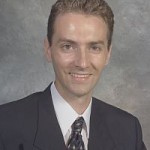 Michigan Technological University and REL, Inc., a Calumet-based technology company with a focus on material-process development, have been awarded a $2.1-million, three-year investment from Southwestern Energy Company (SWN) of Houston, Texas.
Michigan Technological University and REL, Inc., a Calumet-based technology company with a focus on material-process development, have been awarded a $2.1-million, three-year investment from Southwestern Energy Company (SWN) of Houston, Texas.
Read More
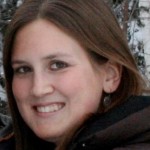 The ME-EM Graduate Seminar speaker on Thursday, December 11 at 4:00 in 103 EERC will be Karen Krueger, Postdoctoral Fellow from Orthopaedics Department, University of Iowa.
The ME-EM Graduate Seminar speaker on Thursday, December 11 at 4:00 in 103 EERC will be Karen Krueger, Postdoctoral Fellow from Orthopaedics Department, University of Iowa.
The title of her presentation will be ‘Computational and Experimental Biomechanics of Total Hip Wear Increase Due to Femoral Head Damage’.
Aseptic loosening due to wear-induced osteolysis remains a leading cause of failure in total hip arthroplasty (THA), par-ticularly in revisions required beyond the second decade of use. Historically, there have been large amounts of variability of wear within individual THA patient cohorts. Evidence indicates that femoral head damage can be a cause of this varia-bility. While femoral head damage as a result of third body particles and subluxation and dislocation events has been well documented, direct quantifiable linkage between such femoral head damage and wear acceleration remains to be estab-lished. Due to large ranges of observed retrieval damage, wear testing protocols for simulating third body and other dam-age effects have been widely variant, making it difficult to know where the clinical reality lies.
To study the effect of retrieval femoral head damage on total hip implant wear, a damage-feature-based finite element (FE) formulation was developed, which allowed for wear prediction due to individual scratch, scrape, and transfer deposit features. A multi-scale imaging procedure was also developed to globally map and quantify micron-level damage features appearing on retrieval femoral heads. This allowed for wear simulations of damage patterns observed on specific retrieval femoral heads. Retrieval damage was shown to be highly variable among patients, and capable of producing up to order-of-magnitude wear increases when compared to undamaged heads. Damage following dislocation and subsequent closed reduction maneuvers was found to be particularly detrimental, with average wear rate increases in the range of half an or-der of magnitude. These data were used to develop wear testing protocols for simulating clinically-occurring third body and other damage effects.
Karen Kruger is currently a postdoctoral fellow in the Orthopaedics depart-ment at the University of Iowa. She earned her B.S. in mechanical engineering and biomedical engineering from Michigan Technological University while com-peting in Varsity cross country and Nordic skiing. While at Michigan Tech, she received a Michigan Space Grant to study the effectsof spaceflight on the knee joint meniscus. She went on to complete her Ph.D. in Biomedical Engineering with a focus on orthopaedic biomechanics at the University of Iowa under the direction of Dr. Thomas Brown. Her dissertation work focused on wear in total hip replacements.
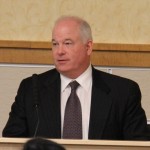 The mechanical engineering-engineering mechanics department held its semi-annual Senior Capstone Design Day Program. Eight teams presented the fruits of their efforts over the past two semesters during presentations to industry reps, faculty, staff, and students. The teams also displayed posters and, in some cases, their prototypes in the rear first-floor hallway of the MEEM building.
The mechanical engineering-engineering mechanics department held its semi-annual Senior Capstone Design Day Program. Eight teams presented the fruits of their efforts over the past two semesters during presentations to industry reps, faculty, staff, and students. The teams also displayed posters and, in some cases, their prototypes in the rear first-floor hallway of the MEEM building.
Keynote Speaker: Gerald E. McGlynn III, 1984 B.S. in Mechanical Engineering, Michigan Tech, Intellectual Property Attorney, Howard and Howard; J.D., cum laude, from Detroit College of Law in 1988
